Thank YOU for a wonderful PIE-Rivers Annual Meeting! On Thursday, December 7th, the PIE Partners,…
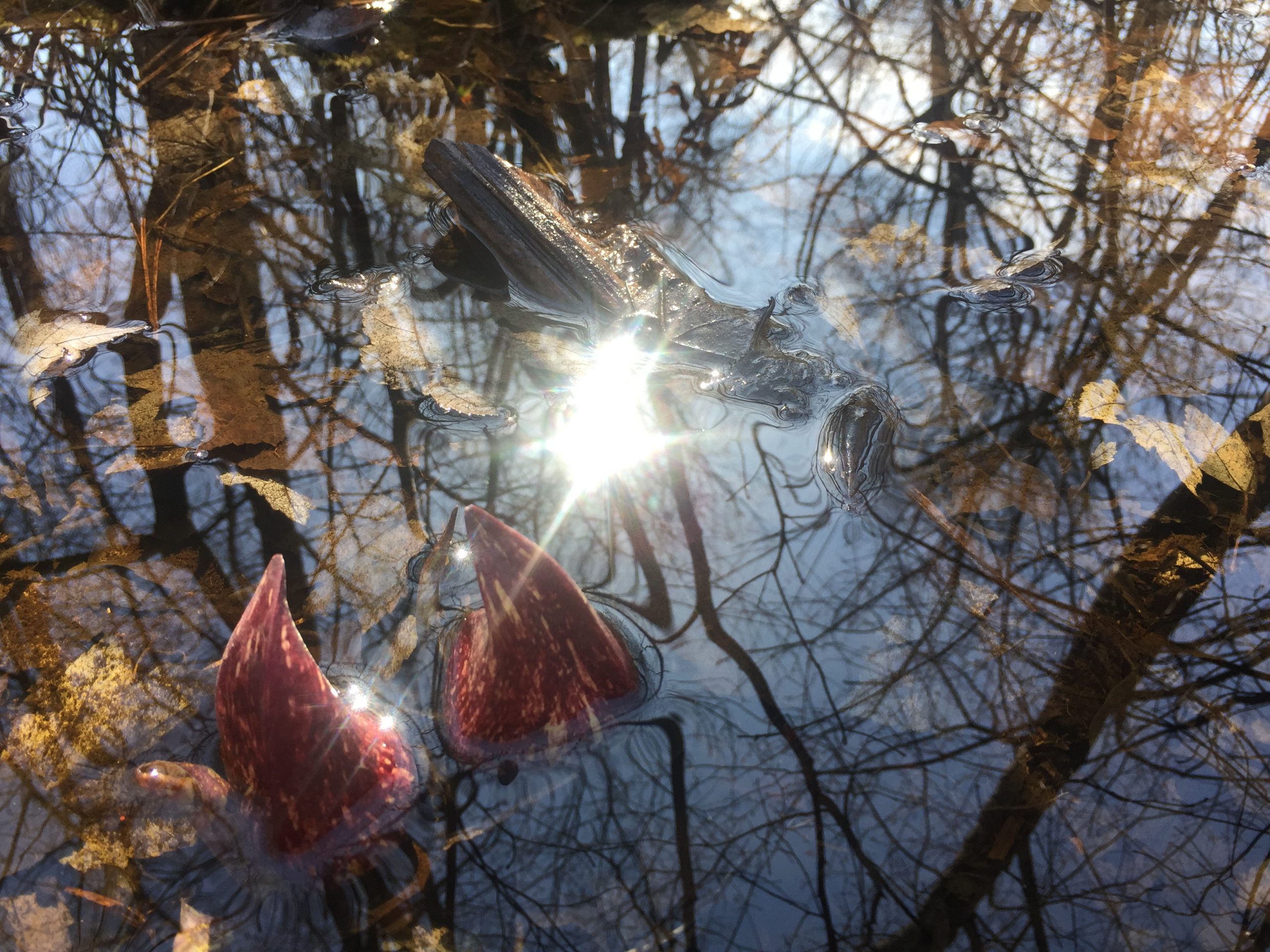
Conservation Enforcement during COVID-19
Clearing vegetation in your yard. Dumping old grass clippings in a wetland. Finally building that new deck or shed. Maybe you’ve decided it’s time to repave the driveway, or take down that tree whose leaves clog your gutter each fall.
What do all these, and other actions that alter existing conditions on your land, have in common? They may require review or permitting by the local Conservation Commission and/or Building Department.
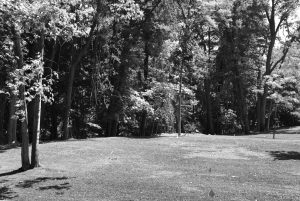
When offices and schools closed back in March due to COVID-19, many people were sent home. That meant more attention on home improvements, including lawn care.
In theory this is a good thing. If more people started wondering how their lawn behavior impacts the region, and reimagined their lawns to reduce water use and bring back wildlife by creating beautiful Greenscapes, then more attention would be great. Most people, for example, don’t know that 80% of the water they use on non-native grasses (which include Kentucky blue) disappears via evaporation.
Done right, lawn care is an opportunity to do something positive in your town and the environment. We asked some of our Town Reps to weigh in on the behavioral changes they’re seeing this year.
Wetlands Are Your Friend
Across the PIE-Rivers Region, Conservation Agents have been hard at work responding to the crisis and letting residents know what they can be doing.
For Amy Maxner, Conservation Administrator for North Andover, it’s about realizing the value of leaving things alone. “In the case of wetlands, it’s about all the services they provide our communities. And they do it all for free!” Wetlands, as Maxner explains, are some of the most valuable assets we have for storing and cleaning freshwater resources, which are in dwindling supply.
“People should understand that wetland protection regulations are formulated on a lot of science about how wetlands function and protect valuable public commodities like drinking water and flood control – not just because they are pretty places where salamanders live.”
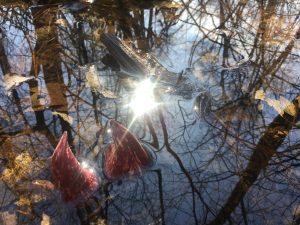
Our climate is changing. As we see increases in both droughts and more intense storms, spaces like wetlands are our cheapest way to store water and recharge our valleys and streams. When we dump our grass clippings or leaves in a wetland, we’re making that wetland’s job harder.
Neighborhood Watch
Bert Comins, Conservation Agent for both West Newbury and Hamilton, has a unique vantage point. In both towns he sees an increase in the number of people calling with concerns during COVID19. “While we haven’t seen a huge uptick in violations, in both towns we’re seeing an increase in the number of reports we get,” Comins says. “People are stuck at home and noticing what their neighbors are doing, maybe for the first time.”
While towns in the PIE-Rivers region do an admirable job informing residents about conservation rules like water restrictions, that doesn’t mean everyone is listening. Surveys like the Water Quality Restoration Program Pilot Project being funded by DER are a great way to assess what residents know— and think— about water quality as it relates to lawn care practices.
As Comins says, “To me it shows we need to make sure people know what the rules are. It’s just like any other rule like speed limits or wearing your seatbelt, but in this case we’re talking about things that impact not just your own safety or people around you, but the long-term health of the entire region.”
Comins, an active kayaker and duck hunter, wants to see more residents getting outside and being safe. “If I can encourage people to do one thing this summer, it’s to use the need to socially distance as added motivation to go and enjoy the outdoors. With most people staying local for the summer and all the usual events cancelled, there’s no better time to get outside and enjoy the variety of natural environments we have right here.”
COVID-19 vs. DROUGHT-20
Aside from breaking the rules, another impact of COVID19 is an increase in residential water use. Speaking to the Daily Item, Lynnfield Center Water District Superintendent John Scenna noted the increase in water use during the pandemic. “With many families home on a more consistent basis and warmer weather fast approaching, water consumption throughout the District remains higher than usual,” says Scenna. “We encourage residents to be cognizant of their usage and thank them for adhering to these guidelines over the next few months.”
As we move into summer and drought conditions continue to worry Town Planners and Water Departments, the PIE-Rivers Region can collaborate to find solutions. One way is to encourage your town to pursue grant funding through their Municipal Vulnerability Preparedness program.
Kristin Kent, Conservation Agent for Middleton, is looking at MVP Action Grants to improve how her town deals with increased storm activity. “Middleton is applying for MVP Action Grants in line with our Vulnerability Preparedness Plan. We’re at this critical point in deciding how the Town is going to grow, and what resources we need to safeguard to help with flood storage and stormwater retention. It’s really important our residents understand the role we all play by protecting wetlands and stream buffers in our neighborhoods.” Kent and her team are partnering with volunteer groups like the Middleton Stream Team to expand trail access and connectivity along the Ipswich River.
There are also a number of actions every town can take to adopt Net-Zero Water Use Policies. But as with many things going on right now in the world, the changes we must make start at home.
Your Friendly Tree-Hugging Ogre
Finally, with everything else going on in the world right now, a friendly phone call may be your best move. In North Andover, Amy Maxner encourages calling your town’s conservation office. “Don’t be scared of us! People think we’re tree-hugging ogres or something. It is so much better to call us and start a conversation.”
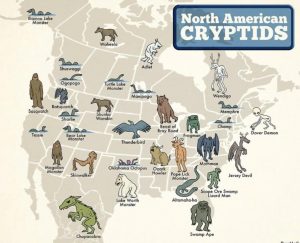
In Topsfield, Heidi Gaffney also encourages residents to call: “Please remember to contact your local conservation department before undertaking any yard projects.” On the positive side, Gaffney notes the number of infractions has gone down in recent weeks as more people have started calling in advance. To help improve compliance among new homeowners who may not realize the impacts of what they do to their lawns, her office is also putting together a letter and a wetlands brochure to send out to new homeowners known to be near resource areas.
In this time of COVID, we want to remind everyone in the PIE-Rivers Region to be both good neighbors and good stewards of the environment. Massachusetts now has close to seven million residents. Whether you’re a new homeowner or not, how you take care of your lawn will have a profound impact on what our state will look like in the future.
Maybe we’ll learn from periods of drought like the present situation. Maybe we’ll get stuck in the mud. Which way we go is up to our neighborhoods, and to town leaders like Gaffney, Maxner, Comins and Kent. All I know is there is a finite amount of clean water in our region. The sooner everyone realizes what we’re facing and offers ways to work together in reducing water use and protecting native plants in Massachusetts, the better.


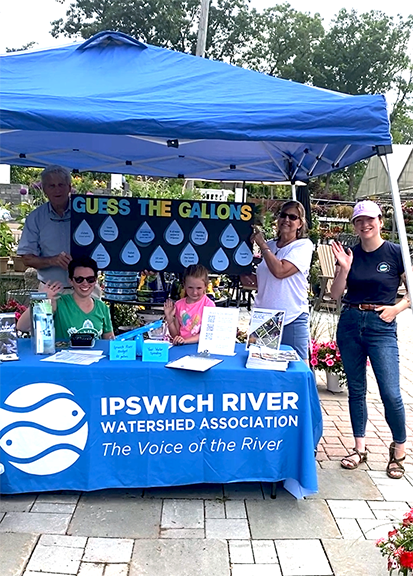
This Post Has 0 Comments